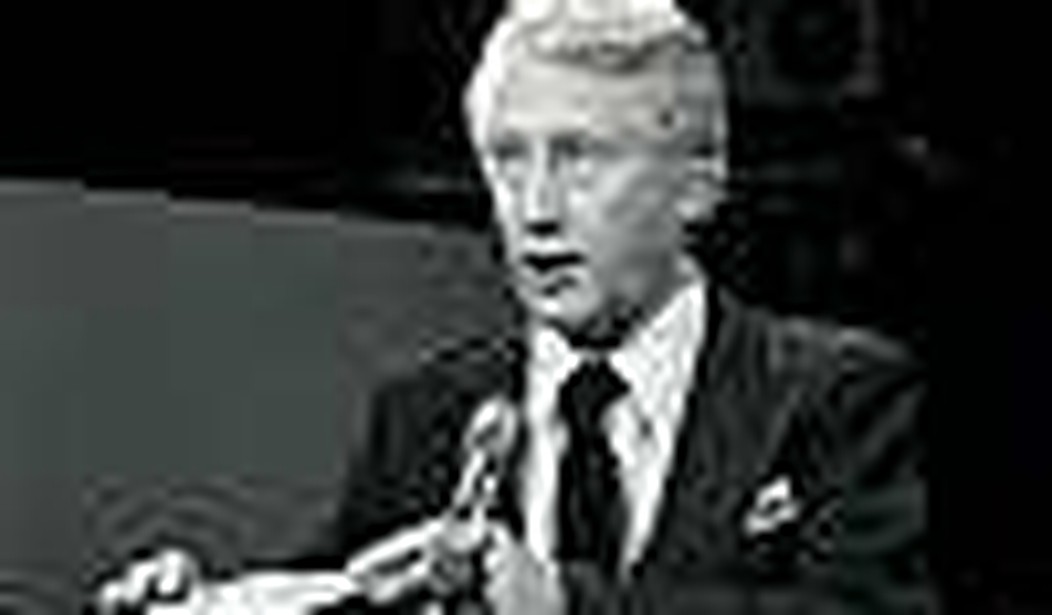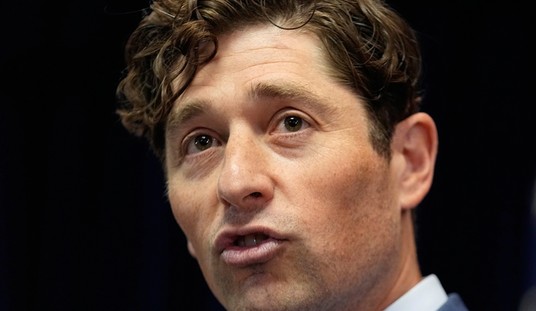When I decided to write something on Mark Felt who passed away this week at 95, an online friend, Narciso, wrote of the “incremental irony of Mark Felt.” When I asked him to elaborate he wrote back:
He conducted illegal or at least dubious surveillance against the Weathermen, he then faults Nixon for the same tactics, he undermined his own agency and ultimately almost ended up in jail.
Besides sage words about being wary of the motives of government employees bearing tales of corruption to the press, Narciso’s words constitute as complete an epitaph of Mark Felt as I can summon.
Felt has been lionized in the media for his revealed role as “Deep Throat” in the Watergate scandal. But he also has a history that shows him to be less than deserving of those accolades.
1. He Conducted Illegal or at Least Dubious Surveillance Against the Weathermen
In 1972 and 1973, the FBI was vigorously pursuing the Weather Underground, a domestic terrorist group who had planted bombs at the Capitol, the Pentagon, and the Department of State. On nine occasions, Felt authorized FBI agents to secretly break into five different residences in New York and New Jersey occupied by persons believed to be associated with the Weathermen.
These break-ins — called “black bag” operations — were conducted without court-approved search warrants. In United States v. U.S. District Court, 407 U.S. 297 (1972), the U.S. Supreme Court declared such warrantless surveillance to be unconstitutional, and the Carter administration, under Attorney General Bell, investigated the FBI’s role in the matter. As a result, Felt was charged with conspiracy to violate the constitutional rights of U.S. citizens (Title 18, Sec. 241 USC) in 1978. After an unsuccessful attempt to plea bargain, the case went to trial in 1980.
Former President Nixon, driven from office by Felt’s revelations to Woodward and Bernstein, still did not know he had been his betrayer. Nixon not only contributed to his defense, but also testified on his behalf — as did other members of his administration.Though found guilty of violating the civil rights of citizens, Felt received a relatively light sentence of a $5,000 fine, and even escaped that when, in March 1981, then-President Reagan pardoned him to the great joy of his fellow agency employees, officers, and Nixon.
2. He Faulted Nixon for the Same Tactics
Unknown to those in the agency who defended him, and to Nixon who supported him, Carter who indicted him, and to Reagan who pardoned him, Felt had been the source “Deep Throat.” His work for Woodward and Bernstein, the Washington Post reporters whose conversations with Felt revealed details of the “black bag” operatives working for Nixon, illuminated the entire illegal intelligence operation that included the break-in at the Watergate Hotel.
In fact, during the 1976 grand jury investigation of Felt’s own “black bag” operation, Assistant Attorney General Stanley Pottinger had learned that Felt was Deep Throat but the secrecy of grand jury proceedings prevented him from disclosing that to anyone.
So, while his colleagues were toasting his pardon and Presidents Reagan and Nixon were doing what they could to exonerate from blame a man whom they considered unjustly convicted, he was continuing to conceal his role as the individual who brought down the Nixon Administration. His reason? Probably for appointing someone else, not him, to the directorship of the FBI.
3. He Undermined His Agency and Ultimately Almost Ended Up in Jail
With the revelation years later of his double role, some argued that Felt was nevertheless a hero for exposing Nixon’s wrongdoing. Others — and I consider myself among them — believe he could have resolved this more honorably by telling what he knew to the grand jury investigating the break-in at the Watergate offices. (Today, of course, legitimate whistleblowers can bring any presumed wrongdoing to the attention of inspector generals in their departments or to the appropriate congressional committees.) Calling it in to the New York Times as Mr. Tamm did on the FISA program or to the Washington Post as Felt did seems more like an act of a wounded ego or spite than something designed to improve government operations.
In Felt’s case, it is hard to imagine a more monstrous betrayal than his. He reviewed every FBI report on the Watergate investigation and gave it to the reporters almost as soon as it hit his desk. One can only imagine the chaos and paranoia that action caused and how it impacted everything the FBI was working on.
Felt escaped punishment for his own wrongdoing and avoided any consequences for his betrayal of the very people who stood by him when he was charged with that wrongdoing.
So if you’re looking for an Aesop Fable-like moral to this story, as in most real life accounts of double dealing, there isn’t one.









Join the conversation as a VIP Member